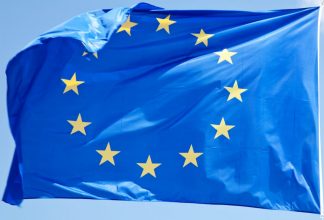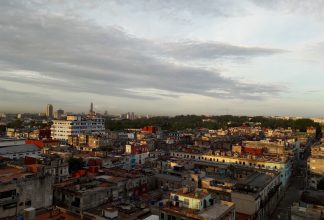Questions Without Answers, and a Suggestion for the EU
Letter #22 by María Matienzo Puerto.
In July 2019, Civil Rights Defenders invited Cuban human rights defenders and civil society organisations to contribute with texts on how the European Union should work towards Cuba. This letter is written by María Matienzo Puerto.
Questions Without Answers, and a suggestion for the EU
How can an average Cuban, with no political influence or million-dollar inheritance, become a small businessperson? Why does a person who disagrees with the state in Cuba have to live in fear of going to jail? Why don’t the citizens on the island protest openly on the streets like the rest of the citizens of the world? Why do the Cuban people prefer to flee to any part of the world? Why are the levels of unhealthiness so high? Why do the Cuban people have so little access to information? And there is more: issues related to femicide, epidemic numbers that are kept quiet, lack of public policies for minorities, prostitution, etc.
These are basic questions, that the EU Member States who sign the PDCA appear to not have asked themselves.
Why do some Cuban people say that there is no rule of law in Cuba? That is another question that the European Parliament, the new European Union Commission, the new representative on foreign matters, and the member states can also ask themselves.
The answer is in Article 5 of the Cuban constitution, which states the supremacy of one political party over any other and of the law itself. Article 5 states that the Communist Party of Cuba “is the highest leading political force in society and the state,” implying that any citizen who does not belong to the party does not have any rights.
On the other hand, the statistics on repression and the Cuban reality, translated into press news by the opposition and the international press, are there in response to each one of these questions. Therefore, signing the PDCA regardless of the nature of the cooperation legitimises power structures that have perpetuated tyranny for over 60 years, where the signatures benefit only the leaders and its allies.
Cuban civil society entities (independent press, opponent, political parties, human rights activists, among others) that are concerned about political issues need assistance. From promoting visibility regarding their status, to public pronouncements in opposition to a state that does not respect the most elementary human rights, contrary to its promise to do so in the ‘Considering’ and ‘Reaffirming’ provision of the PDCA signed in 2016.
Cuban civil society entities that are more concerned about economic growth, and that try to start businesses based on an economy that has been depressed and strangled by 60 years of corruption and poor governance, need economic support. We are talking about support, not about European charity, but about the possibility that banks and institutions could open their doors to the Cuban microeconomy, without any interference from the Cuban government and its sole accounts, to which the Cuban people have no access. This assistance should place particular emphasis on disadvantaged groups, such as women and people of African descent.
In both examples of Cuban independent civil society, the UE could acknowledge the Cuban independent civil society legal status since the state does not recognise this, nor has enacted laws to legitimise any political parties, political and mass associations, or commercial ties, companies, and national brands.
How can independent civil society be distinguished from civil society that is known and supported by the government?
Complacent political discourse that is in sync with that of the government is the most evident symptom, but there are others. One part of that civil society does not do anything, either to democratise society in general or to foster its growth; it does not provide any services that generate employment or any benefits for other citizens; and the ones belonging to the economic sector will require government mediation, even if this goes against their own interests. They are the first ones to commit crimes, such as striking, defaming, confronting, or vilifying anyone whose thinking differs from theirs.
In the meantime, independent civil society tends to require democratisation within its political and social spaces, denounces atrocities, shortages, and corruption, and even when its interests are not political, tends to cast doubt on the government’s perks because it knows that these are but other forms of slavery. The state will never acknowledge its existence and, even if it does, it will only be to discredit it.
One of the ways in which the Cuban people make the government hear its demands, even when this is not publicly acknowledged, is for the states with which the government connects to be consistent in terms of the human rights situation in Cuba.
This could be the EU’s opportunity to reaffirm its solidarity with the Cuban citizens, focusing the political dialogue on the Cuban reality and not on the rhetoric of the state’s representatives, i.e., on the economic plane, toward microeconomies, fostering dialogue with the true actors of the new, small, and nearly emergent Cuban entrepreneurialism.
Citizens who wish to enter the twenty-first century must adapt to the laws and regulations established by the EU’s member states who wish to open their doors to us.
María Matienzo Puerto, independent journalist
About María Matienzo Puerto
María Matienzo was born in Havana in 1979, she is a writer and independent journalist. As a reporter she has worked for the websites Cubaliteraria, Havana Times, and Diario de Cuba. In the latter,she published an anthology of reports titled Apocalipsis La Habana (Havana Apocalypse). Additionally, she is the author of several books and literary essays in magazines.

